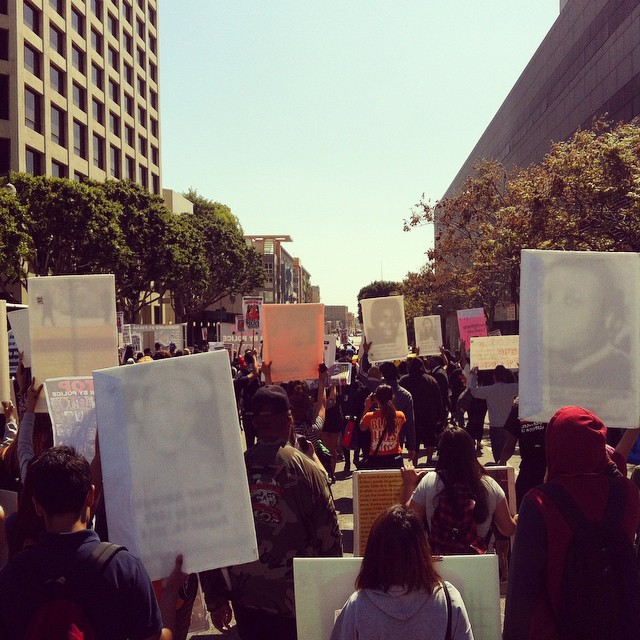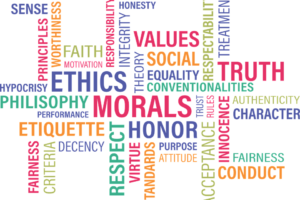In light of the Walter Scott and Eric Harris killings, along with the #ShutdownA14 protests against police brutality this past week, I’d like to share an excerpt from my essay entitled, “To Establish Justice at The Gates”, which was published in the Los Angeles Review of Books earlier this month.
How can I be well, when my sister is not well; how can I not be well if my brother has found love? […] in this concept, when one person is diminished, everybody is diminished. When one person is triumphant, we are all triumphant. This is what it means to be truly human; to know that you are bound up in the bond of life.
— Rabbi Sharon Brous
Historical amnesia and incuriousness about the violence of the past is the luxury of the oppressor.
— Simon Critchley, The Faith of the Faithless
They hate the one who rebukes at the gate and they abhor the one who speaks uprightly […] therefore the prudent keep silent at that time, for it is an evil time. [Therefore] Hate evil, love good; establish justice at the gates.
— Amos, A Sheepherder
I RECENTLY SPOKE with a social justice activist who works with LGBTQIA students on conservative evangelical Christian university campuses. She told me that the day before, an LGBTQIA student had attempted to take his life. She then asked if she could be frank when talking about the university and its oppressive policies. “Of course,” I replied. “Good,” she said, lowering her voice. “People are dying out here and I don’t have time for bullshit.”
Conversations about race in America often suffer, I feel, from the same problem. They quickly devolve from a dialogue about the subject of racism itself into an argument about the way in which that subject is being discussed — this becomes a form of policing people’s tone, a practice which ultimately polices dissent. I think many of us, often without thinking, attempt to silence those who have the courage to speak frankly on issues of race, oppression, and systems of white supremacy in this country. In America, oppressed groups angry about something are often told they shouldn’t be. They are told — we are told — that our words are too strong.
If you feel marginalized, hurt, or outcast by this frankness, you may very well be one of the fortunate ones for whom frankness does little more than offend. For others, that frankness could very well mean lying dead in the street for four and a half hours. Perhaps this kind of frankness is threatening because it forces you to move out of your obliviousness into a conscious space where you may actually have to do something about what we’re pointing out. That something you feel compelled to do may now also come with an actual sense of urgency, free of charge, that you may not have felt before. Perhaps you may even feel like people’s lives are in your hands as a citizen of this country.
If so, then consider what you’re feeling as a new frame of mind: People are dying out here; we don’t have time for bullshit.





Leave a Reply
Your email is safe with us.